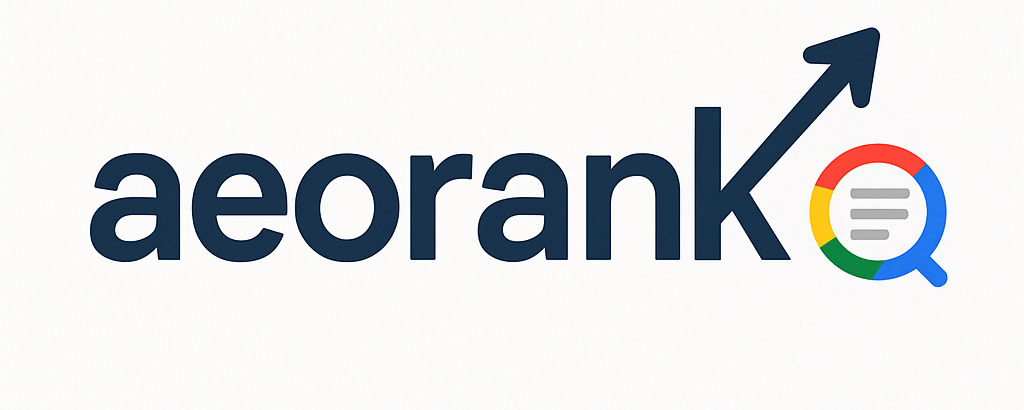AI is everywhere, and if you’re in digital marketing, content strategy, or just trying to get seen on Google, you’ve probably asked: Can AI content really help with SEO? The short answer? Yes—but with a big asterisk.
Let’s talk about how to use AI content the right way to climb the search ranks, keep Google happy, and actually engage real people (not just algorithms).
AI Content Isn’t Just About Speed—It’s About Structure
We get it. AI can write fast. Need 10 blog posts by next Friday? No problem. But speed isn’t what gets you ranking. What matters is how that content fits Google’s expectations—clean structure, solid internal linking, clear intent.
That’s where the magic happens.
If your AI-generated piece doesn’t:
- Match user search intent
- Include relevant internal links (like to your entity-based SEO strategy)
- Support the E-E-A-T guidelines (Experience, Expertise, Authoritativeness, Trustworthiness)
…then it’s just another digital ghost.
Google’s Take on AI Content
Contrary to popular myths, Google doesn’t hate AI content. What it hates is low-quality, generic content that offers zero value.
Here’s what Google really wants:
- Original insights or experience
- Clear, helpful answers to user queries
- Content that supports AI Overviews and featured snippets
That means your AI content needs editing, structuring, and a human touch. Auto-publish junk, and you’ll tank. Refine it, and you’ll shine.
Pro tip: Use AI to draft, then layer in expertise and polish. Think of AI as your intern, not your editor-in-chief.
SEO-AI Workflow That Works
If you want AI content to truly serve your SEO goals, here’s a workflow that doesn’t cut corners:
- Keyword & entity research – Plan clusters, not just one-offs.
- Prompt AI for outline + first draft – Use a tool like ChatGPT to structure around key questions.
- Add internal links – Link to core service pages, like this one on AIO-driven content.
- Insert human insight – Add examples, metaphors, commentary.
- Optimize for snippets – Use lists, FAQs, summaries.
- Apply schema markup – FAQ schema, Article, HowTo, Review, etc.
It’s not just writing—it’s assembling a page built for Google’s AI to understand and reuse.
Types of Content AI Can Help You Rank With
Not all content is equal. But when used right, AI works wonders for:
- How-to guides and tutorials
- FAQs and People Also Ask-style answers
- Comparison articles
- Topic clusters and content hubs
- Product descriptions
These are perfect playgrounds for AI because they’re predictable in structure, but flexible in tone and depth.
Want to see it in action? Check our breakdown of ChatGPT + SEO content strategy to see how it works from idea to ranking.
Red Flags: When AI Hurts Your SEO
Here’s the thing: AI content can tank your SEO if you’re not careful.
Look out for:
- Overused phrases and repetition
- Hallucinated facts or stats
- No author attribution or E-E-A-T
- Ignoring intent (writing a sales pitch for an informational query)
- Long-winded intros and robotic tone
Google’s AI Overview doesn’t just read—it judges. So keep it crisp, clean, and relevant.
E-E-A-T: The Human Layer AI Can’t Fake
This one matters more than most people realize. Google is getting sharper at spotting content with real Experience and Expertise. So how do you inject that human layer into AI-written content?
- Add quotes from real clients or case studies
- Link to original research or unique datasets
- Mention tools or processes your team actually uses
- Highlight personal insights from team members
Even just saying, “Here’s what we learned working with X brand,” can elevate a post in Google’s eyes. Want to go deeper? Our post on building topical authority with AI explains the strategy in detail.
Future-Proofing: What’s Next for AI SEO Content?
AI content in 2025 isn’t just about producing fast—it’s about building search ecosystems. Here’s where the trend is headed:
- Personalized content generation at scale for segmented audiences
- Entity-first SEO that connects concepts, not just keywords
- Semantic search modeling using NLP-focused content structuring
- Chat-based interfaces—content that feeds and answers tools like ChatGPT or Perplexity
If you’re still thinking in terms of “ranking a blog post,” you’re behind. Think bigger. Think systems. Think SEO content that feeds AI as much as humans.
Real Talk: Is AI Content Worth It for SEO?
Absolutely—if you treat it as a tool, not a magic wand.
Use AI to brainstorm, outline, and scale production. But always bring in:
- Editors
- Subject matter experts
- SEO strategists
Because great SEO content isn’t just “written”—it’s crafted, structured, and optimized to be found and featured.
FAQs About AI Content for SEO
1. Does Google penalize AI-generated content?
Nope. Google penalizes low-quality content. If your AI writing is helpful, clear, and trustworthy, it’s fine.
2. What’s the best way to use ChatGPT for SEO writing?
Use it for outlines, FAQs, and structured content blocks. Then refine it manually.
3. Should AI replace human writers for SEO?
No. AI should support, not replace. Human writers still bring nuance, insight, and credibility.
4. How do I make AI content pass Google’s E-E-A-T check?
Include author bios, cite sources, share personal experience, and add schema.
5. What tools help with AI SEO content?
ChatGPT, Surfer SEO, RankMath, NeuronWriter, Jasper—all great if used thoughtfully.
Want content that’s AI-powered and Google-proof? You know where to go: aeoranko.com.
Smarter content. Better rankings. Less stress.
